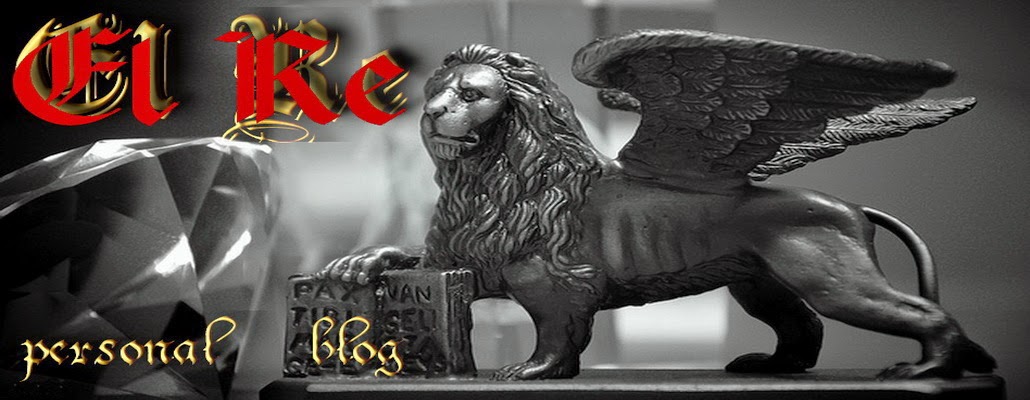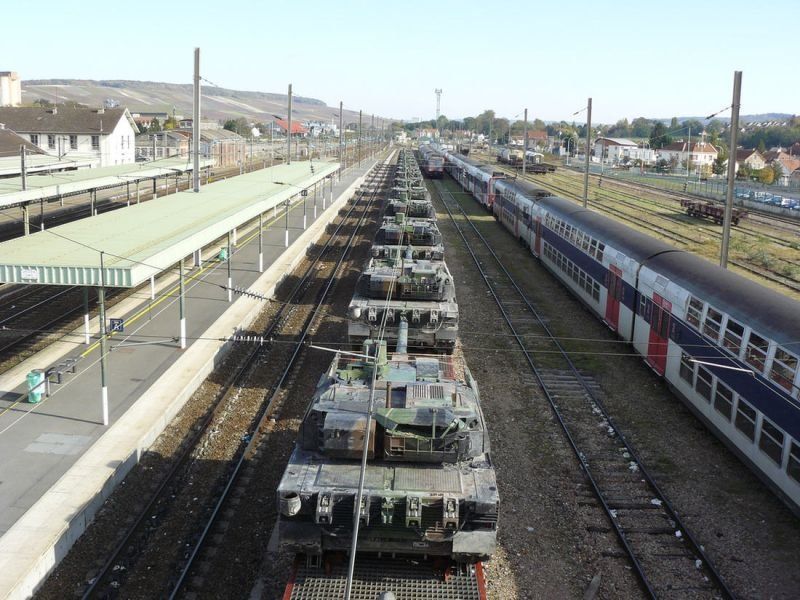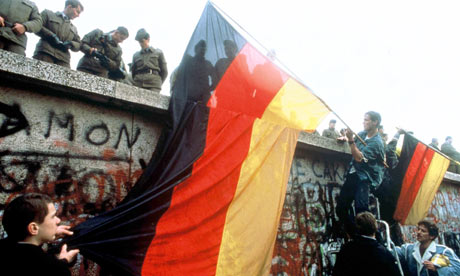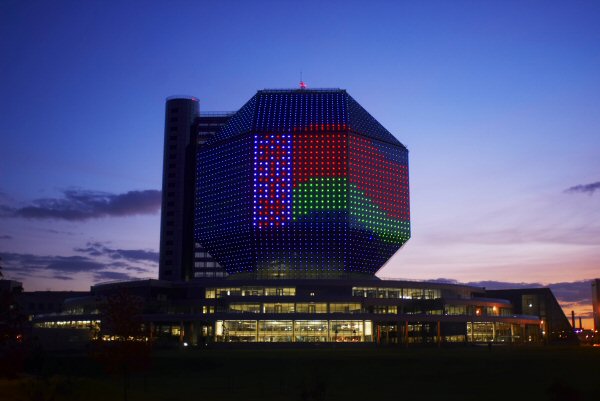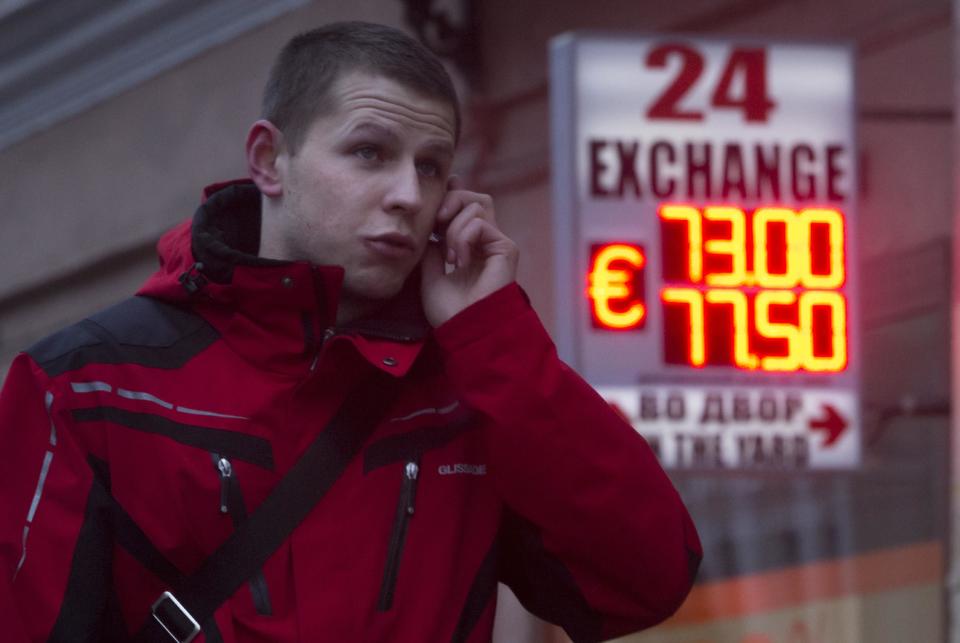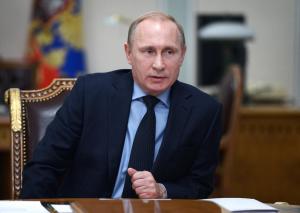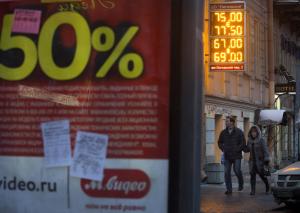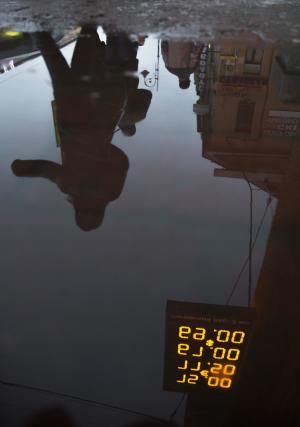Radio Free Europe/Radio Liberty: 28. January 2015
By Robert Coalson and Rikard Jozwiak

Belarusian President Alyaksandr Lukashenko.
Alyaksandr Lukashenko isn't known for waxing poetically about the Belarusian language. But that's exactly what he did at a youth gathering in Minsk earlier this month.
“Culture is what makes a Belarusian person Belarusian,” Lukashenko said. “It is not only literature, music, and architecture, but also our language, which we must know; our history, which we must remember; and our values, which we must respect.”
The unexpected defense of the national identity -- and particularly the Belarusian language -- was one of many indications in recent months that the authoritarian Belarusian president has grown uncomfortable with his country’s current geopolitical position in the shadow of neighboring Russia.
“No matter who comes to the Belarusian land, I will fight,” Lukashenko said in an interview with Russia’s independent Dozhd television last May. “Even if it is [Russian President Vladimir] Putin.”
The crisis in neighboring Ukraine, during which Lukashenko has consistently defended Ukraine’s sovereignty and territorial integrity while playing an active mediating role to regulate the violence, seems to be offering an opportunity for Belarus to improve its relations with the West.
"Given the increasing issues that President Lukashenko has with the Kremlin, this is an extra incentive for him to try and engage with the European Union,” says Hrant Kostanyan of the Center for European Policy Studies in Brussels.
Maja Kocijancic, a spokeswoman for European Union foreign policy chief Frederica Mogherini, tells RFE/RL that the bloc is “appreciative” of Lukashenka’s positions on Ukraine.
Belarus has not joined Russia in implementing countersanctions against EU countries, despite being a member of the Moscow-led Eurasian Economic Union.
An EU official, who asked not to be identified, cautioned that it is “too early” to talk about progress in relations with Minsk, although “positive steps” have been noted.
“Minsk has woken up to the fact that the world is a nuanced place where you cannot rely on one partner,” the official said.
In more than 20 years at the helm in Minsk, Lukashenka has made an art of weaving between Moscow and the West, accepting generous handouts and political security from his patrons in Russia, while resisting Moscow’s efforts to undermine Belarusian sovereignty or even to fold the small country into the Russian Federation.
But this time, Lukashenka’s defiant stance may be taking deeper roots.
Last week, state media in Belarus announced a new policy of “de-Russification” of the country’s schools, a policy seemingly aimed at reviving the Belarusian language. According to a 2009 poll, 53.2 percent of Belarusians consider Belarusian their native language, down from 73.6 percent in 1999.
On January 26, the government announced its largest-ever peacetime exercises of military reserves, involving some 15,000 people.
And on February 1, a new military doctrine will take effect that specifically states the “sending of armed groups, irregular armed forces, mercenary groups, or regular armed forces who use arms against the Republic of Belarus by a foreign country or countries or on behalf of a foreign country or countries” will trigger a declaration of war.
Belarus cultural festival.
Convergence over Ukraine
In December, amid a broad government shakeup seemingly prompted by the tottering economy, Lukashenka named Alyaksandr Kosinets as his chief of staff, considered the second most-powerful position in the country.
Kostinets, a former provincial official from Vitsebsk, is a Soviet-style statist like Lukashenka himself. But he is also a Belarusian patriot who tamped down displays of Russian nationalism in his region. He also erected a monument to Grand Lithuanian Duke Alhierd in Vitsebsk last year over the protests of local ethnic Russians and Cossacks.
At the same time, Minsk has been – at a glacial pace – reforming and modernizing its economy. Hrant Kostanyan notes that more than 55 percent of Belarusians are now employed in the private sector, a dramatic increase that has steadily built up over the last decade. The growing private sector is inevitably interested in better trade relations with the EU, compared to state-owned giants with long-standing ties to the Russian economy.
The convergence of views between Minsk and the EU over Ukraine seems to be offering an opportunity to improve relations. The EU noted Lukashenko’s release of several activists that the bloc considered to be political prisoners and responded late last year by trimming the list of Belarusian officials and entities that are targeted by EU sanctions.
The National Library of Belarus (Minsk) an architectural diamond, is lit at night in stunning fashion by 4646 color-changing RGB/LED fixtures.
Minsk has also reached out to its Baltic neighbors and to Poland, taking advantage of the common ground it has with them concerning Ukraine. Latvia currently holds the rotating EU Presidency and Latvian Foreign Minister Edgars Rinkevics noted earlier this month that there are “new openings” in relations with Belarus.
The bloc held two rounds of talks with Minsk on visa facilitation in 2014 and a third round is expected this spring. Sources in the EU say a deal on visa facilitation could be initialed at the summit of the EU’s Eastern Partnership program in Riga in May.
EU officials, however, stress that they are not changing their position on “political prisoners” in Belarus and that remains an obstacle to deeper normalization. Amnesty International has recognized seven remaining political prisoners in Belarus.
Analyst Kostanyan says that Belarus has indicated to the EU that Lukashenko would like to attend the Riga summit personally. Belarus – together with Azerbaijan – has been something of a black sheep in the Eastern Partnership program, and Minsk has been represented by lower-level officials at all its summits since it began in 2009.
EU spokesperson Kocijancic does not rule out an appearance by Lukashenka at Riga, but adds it is “premature” to discuss who will attend the event. Analysts say it is more likely that Belarus would be represented by Prime Minister Andrey Kabyakau -- which would still be an upgrade since Minsk was represented by its foreign minister in Vilnius in 2013.
Russia, however, continues to have enormous leverage over Belarus’s economy -- particularly the energy and electricity sectors. In addition, the EU continues to press Lukashenka for political openness, while Russia is not concerned by Belarus’s authoritarian system. That issue will come to the fore again as Belarus holds another presidential election in November.
-------------------------------------------------------------------------
Robert Coalson reported and wrote from Prague. Rikard Jozwiak reported from Brussels. RFE/RL's Belarus Service also contributed to this report


